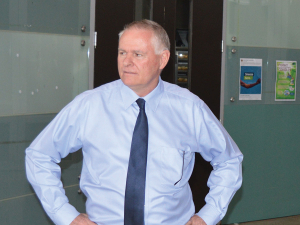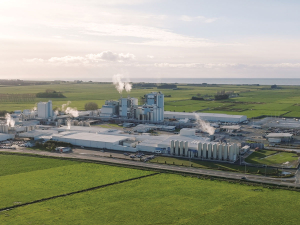National's policy announcement on genetic modification in New Zealand has been described as "exciting" by BioTech NZ.
Director Zahra Champion says that addressing the use of biotech will unlock enormous benefits to ensure a better tommorrow.
Announced by Judith Collins, National proposes to end the 'effective ban' on Gene Editing (GE) and Genetic Modification (GM) in New Zealand. It will also create a dedicated regulator to ensure safe and ethical use of biotechnology and streamline approvals for trials and use of non-GE/GM technology in line with other OECD countries.
"Gene technology is used around the world to treat cardiovascular diseases, cancer and blood disorders," Collins says. "It has been used in New Zealand laboratories since the 1970s but our restrictive rules put in place in 2003 make research outside the lab all but impossible. This means our scientists have had to head overseas to conduct further research."
GM technology and policy has had a controversial political history in NZ over the past 20 years. Just ahead of the 2002 election, Nicky Hager published the book Seeds of Distrust, alleging that in 2000 government officials had covered up an accidental release of GM corn into the country. Combined with campaigning from activist Mothers Against Genetic Engineering, this made GE a major issue in the 2002 election.
Under New Zealand law, a GMO is defined as anything that has had its genes or genetic materials modified by in vitro techniques, such as test tubes, or that is inherited or otherwise derived from genetic material modified by in vitro techniques.
It is illegal to import GM seeds and nursery stock into New Zealand without approval from the Environmental Protection Authority, with no GM seeds or nursery stock approved.
Collins says National understood that there is some public concern around the efficacy of certain GM and GE applications being released into the environment, particularly regarding Māori spiritual beliefs of mauri (life force).
But she stresses that National's biotechnology policy will include multiple reviews "dedicated to ensuring scientific, ethical, social, cultural and economic consequences of research and applications of gene editing or modification are considered for every application".
BioTech NZ director Zahra Champion says modern biotechnology research can add value to the products and processes of many New Zealand industries such as agriculture and forestry. She adds that the country's world-class expertise and exceptional strengths in key industries give it a unique opportunity to leverage biotech innovations to drive growth, address climate challenges and create a more prosperous and healthy future.
"The biotech sector will aid in the development of new products and services," she claims. "We are seeing this in the area of immunotherapy and vaccine production and clinical trials... We have a vibrant and growing community that is already taking on the world and attracting international funding and talent."
Rural News has previously reported on a high metabolisable energy ryegrass from AgResearch that reduced methane emissions in cattle by 23%, along with being drought resistant and faster growing. However, development has been slow due to NZ laws prohibiting it from being grown here, necessitating trials overseas.
Rural News asked the Ministry for Environment for comment. In a statement, Minister David Parker said that the Government recognised that technology had moved on since the rules were put into place and was open to change.
“For example, we are looking at whether there are any unnecessarily restrictive rules around GMO’s within contained laboratory settings and biomedical therapies.
“However, it is important we take a careful approach to get the balance right for the security of our exports and economy.”










